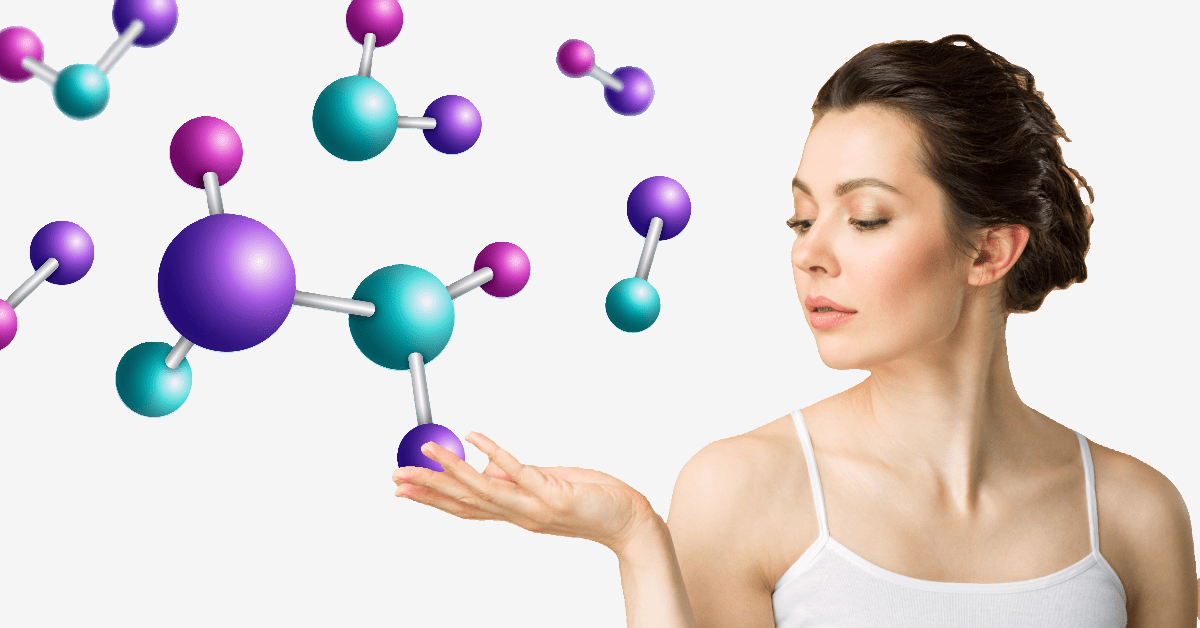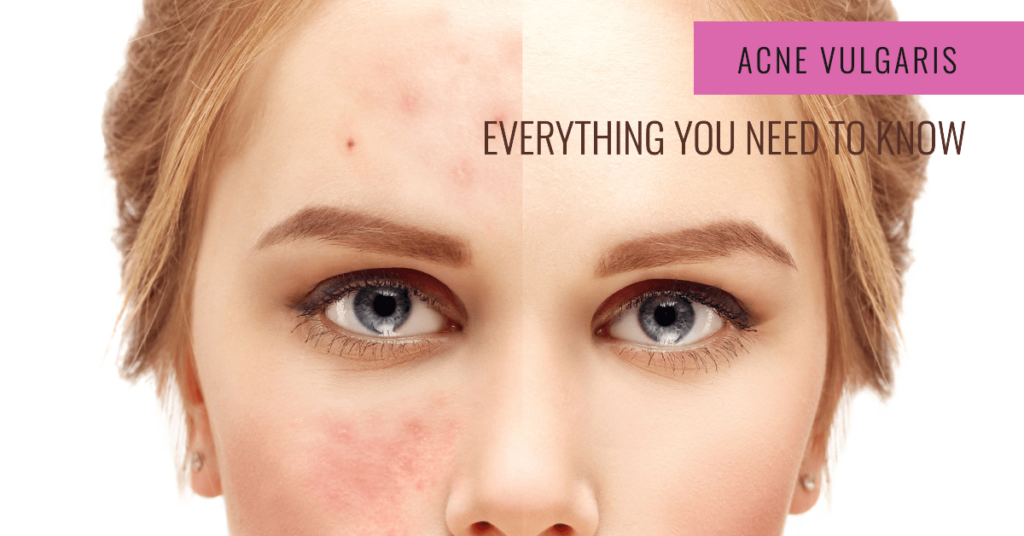Hyaluronic Acid is a naturally occurring substance found in the human body, particularly in the skin, connective tissues, and eyes. It is important because it plays a vital role in maintaining skin health, hydration, and overall well-being. It’s like a sponge for the skin, capable of holding up to 1000 times its weight in water. From serums to moisturizers, this powerful compound has become a staple in countless products, promising to hydrate, plump, and rejuvenate the skin. But amidst the hype, questions arise: Is Hyaluronic Acid Truly The Holy Grail of Skincare, or Is It Merely A Passing Trend? Let’s delve into the science and separate myth from reality.
What Is Hyaluronic Acid?
HA is a naturally occurring substance found in the human body, particularly in the skin, connective tissues, and eyes. It is important because it plays a vital role in maintaining skin health, hydration, and overall well-being. As a key component of the skin’s extracellular matrix, it helps keep the skin moisturized, firm, and resilient. With age and environmental factors such as sun exposure and pollution, the body’s natural production of hyaluronic acid decreases, leading to dryness, loss of elasticity, and signs of aging. Therefore, incorporating this ingredient into skincare routines can replenish moisture, enhance skin texture, and support a more youthful appearance, promoting confidence and self-care.
Why Is Everyone Crazy About It?
The frenzy surrounding hyaluronic acid stems from its remarkable ability to attract and retain moisture. It’s like a sponge for the skin, capable of holding up to 1000 times its weight in water. This unparalleled hydration potential translates to plumper, smoother, and more radiant skin, making it a coveted ingredient in skincare formulations.
How is Hyaluronic Acid Made?
Commercially, this acid is commonly obtained through extraction from animal tissues, such as rooster combs or bovine vitreous humor. However, due to concerns regarding potential allergenicity and ethical considerations, the use of animal-derived hyaluronic acid has become less common, with most products now utilizing bio fermentation methods to produce HA using genetically engineered bacteria.
Bio-Fermentation Method: This process involves the use of genetically modified bacteria, typically strains of Streptococcus equi or Bacillus subtilis, which have been engineered to produce HA efficiently. These bacteria are cultivated in bioreactors under controlled conditions, where they synthesize this acid through fermentation of sugars such as glucose or sucrose.
How Does It Hydrate Our Skin?
HA works its magic through a process called hydration binding. When applied topically, it forms a film on the skin’s surface, attracting water molecules from the environment and the deeper layers of the skin. This hydration influx not only plumps up the skin but also helps to maintain its suppleness and elasticity.
Technically, (Assuming you have fundamental knowledge of the Structure And Functions of Human Skin), upon application, hyaluronic acid penetrates the epidermis and dermis, where it binds to water molecules and forms a gel-like matrix. This matrix fills in the spaces between skin cells, providing immediate hydration and smoothing out fine lines and wrinkles. Furthermore, it stimulates the production of collagen, a crucial protein that gives skin its strength and structure.
Functions & Benefits of Hyaluronic Acid
- Intense Hydration: It attracts and retains moisture, providing deep hydration to the skin.
- Improved Skin Elasticity: By enhancing skin hydration, it helps improve elasticity, resulting in a firmer and more supple complexion.
- Reduced Wrinkles and Fine Lines: This acid plumps up the skin, diminishing the appearance of wrinkles and fine lines.
- Soothes Irritation: With its hydrating and calming properties, it helps soothe and alleviate irritation or redness.
- Supports Skin Barrier Function: It fortifies the skin’s natural barrier, protecting it from environmental stressors and pollutants.
- Non-Comedogenic: It is lightweight and non-greasy, making it suitable for all skin types, including oily or acne-prone skin.
- Compatible with Other Ingredients: It blends seamlessly with other skincare ingredients, enhancing their efficacy and promoting better absorption.
- Enhances Overall Skin Texture: Regular use of this compound can result in smoother, softer and clear skin with improved texture and radiance.
- Promotes Wound Healing: It accelerates the wound healing process by hydrating the skin and promoting tissue repair.
Is There Any Alternative to it?
While this magical compound is undoubtedly effective, there are alternative ingredients that offer similar benefits. For instance, glycerin, a humectant commonly found in skincare products, attracts moisture to the skin and helps maintain its hydration levels. Additionally, ingredients like squalane and ceramides replenish the skin’s lipid barrier, preventing moisture loss and improving overall hydration.
For those seeking natural alternatives to this Acid, certain botanical extracts can provide hydration and nourishment to the skin. Aloe vera, for example, is renowned for its soothing and moisturizing properties, while honey acts as a humectant, drawing moisture into the skin. Similarly, extracts like green tea and rosehip oil are rich in antioxidants and essential fatty acids, promoting skin health and hydration.
Does Science Support The Claims of Hyaluronic Acid?
Numerous scientific studies have validated the efficacy of this acid in skincare. Clinical trials have demonstrated its ability to increase skin hydration, improve elasticity, and reduce the appearance of wrinkles. Moreover, researchers have uncovered the molecular mechanisms underlying hyaluronic acid’s moisturizing and anti-aging effects, further solidifying its status as a skincare superstar.
Demystifying The Truth Behind The Debate
While this acid undoubtedly offers impressive benefits for the skin, it’s essential to manage expectations and recognize that it’s not a miracle cure-all. Its effects are primarily cosmetic and temporary, requiring consistent use to maintain results. Additionally, individuals with certain skin conditions or sensitivities may experience adverse reactions to hyaluronic acid formulations, underscoring the importance of patch testing and consulting with a dermatologist.
Now, in this ongoing debate surrounding this acid, it’s crucial to approach the topic with a balanced perspective. While it undoubtedly boasts hydrating and anti-aging properties, it’s not a one-size-fits-all solution, and its efficacy may vary depending on factors such as skin type, formulation, and concentration. Ultimately, the decision to incorporate hyaluronic acid into your skincare routine should be based on individual preferences, concerns, and goals.
Conclusion:
In conclusion, HA has earned its reputation as a skincare powerhouse, thanks to its exceptional hydrating and anti-aging properties. For many individuals, incorporating this acid into their skincare regimen can lead to visibly smoother, plumper, and more radiant skin. However, it’s essential to approach its usage with realistic expectations and to consider alternative ingredients and formulations that may better suit your skin’s needs. Whether you’re a believer in the HA craze or remain skeptical of its benefits, one thing is certain: when it comes to skincare, knowledge and informed decision-making are key.




